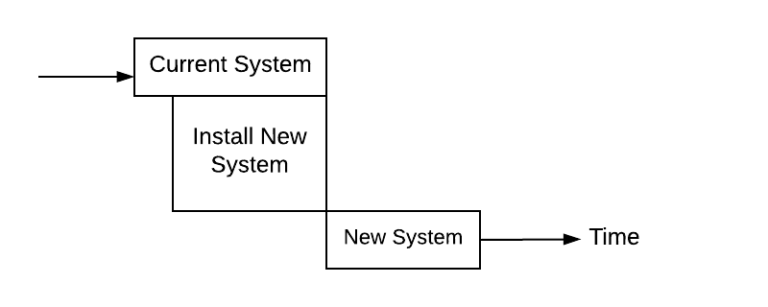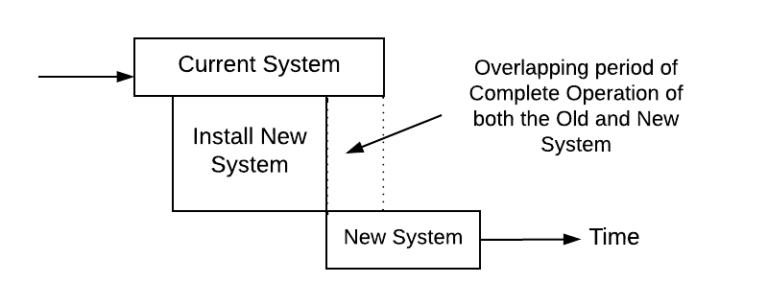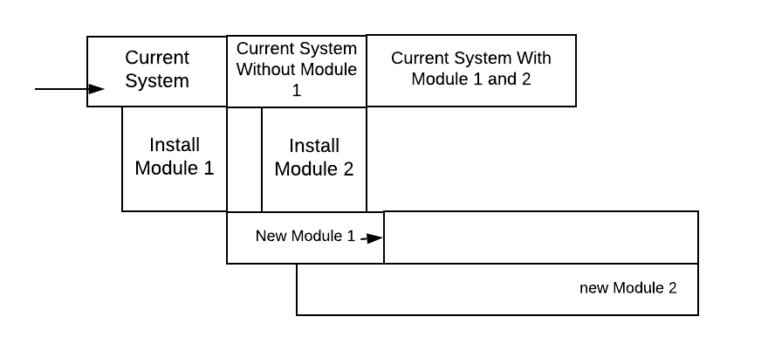System Implementation:- The term Implementation may be defined as “Implementation is the process of converting the manual or old computerized system with the newly developed system & making it operational, without disturbing the functioning of the organization.”
System Implementation comprises the following
1. Creating computer compatible files
2. Training the people who are going to actually operate the system
3. Installing the necessary hardware, terminals & network
4. Installing the proposed software, testing and performing audit trail
Types of System Implementation
Fresh Implementation
Implementation of a totally new computerized system by replacing the manual system
Replacement Implementation
Implementation of a new computerized system by replacing an old computerized system
Modified Implementation
Implementation of the modified computerized system by replacing an old computerized system
Installation/ Conversion/ System Changeover Installation
The organizational process of changing over from the current information system to a new one.
Approaches to Installation/Conversion Methods
Basically, these are four methods of conversion.
A. Direct cutover Installation
B. Parallel Installation
C. Phased Installation
D. Single-Location Installation/ Phased-in method of conversion
A. Direct cutover Method
Changing over from the old information system to a new one by turning off the old system when the new one is turned on.

Advantage
Fastest Method
Disadvantage
Very risky
This method is prepared in situations where
> Change over time is very less
> Available man-power is also new
>New system is not very crucial to the business operations
B. Parallel Installation
Running the old information system & the new information system at the same time until management decides the old system can be turned off.

Advantage
> Availability of the old system as a backup
> More secure
Disadvantage
> Very expensive & time-consuming
> Additional manpower must be provided for the operation of two systems in parallel
C. Phased –In- Method of Conversion
In this method, the new system is implemented in many phases. Each phase is carried out only after successful implementation of the previous phase.

Advantage
> It is not expensive
> There is no danger to the total breakdown
> The users get sufficient time to become acquainted with the new system
Disadvantage
It is used in a situation when the new system significantly differs from the old system.
D. Pilot System/ Single-Location Installation
Single location installation involves trying out a new information system at one site & using the experienced decide how the new system should e installed throughout the organization.
Advantage
Limits the potential damage & potential cost of limiting the effects to a single site.